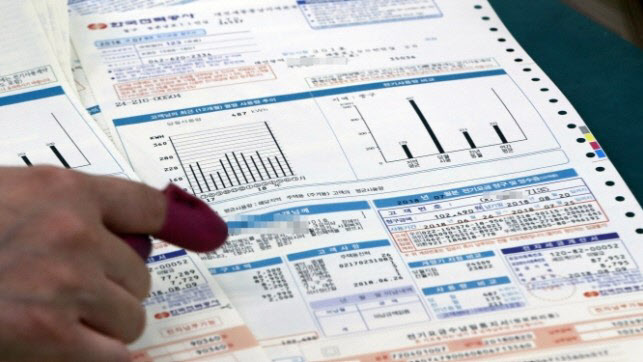|
According to the Korea Exchange on the 23rd, the KOSPI Electric and Gas Industry Index fell 36.21 points (4.66%) to 741.51 from the 22nd when electricity rates were announced for the second quarter to this day. Stock prices thought that the effect of freezing electricity rates the previous day had a major impact. KEPCO shares fell 5.80% for two days (based on the 23rd closing price).
The previous day, KEPCO announced that the fuel cost adjustment unit for the second quarter was set at -3.0 won per kWh following the first quarter. At the end of last year, KEPCO introduced a’fuel cost indexing system’ that sets electricity rates by reflecting fluctuations in fuel costs. With the recent surge in natural liquefied gas (LNG) prices, the rate cut had to be reduced, but it was frozen. Eugene Investment & Securities summarized the background as △LNG price surge as a temporary phenomenon △Stabilization of utility bills to stabilize people’s lives due to the prolonged Corona 19 △2 won/kWh, which could not be cut in the first quarter.
It is also predicted that the freeze on electricity rates will lead to institutional sales of the utility sector. On the 23rd, foreigners and institutions (252,3899 shares) out of the total transaction volume of KEPCO (9,59,1472 shares), net sold 383,8427 shares (40% of the total). A researcher at a securities firm explained, “As the institution has a large portion of passive funds, it may lead to sales of utility-related industries.” It refers to the outflow of passive (passive) investment funds that follow the market trend regardless of the selection of stocks and themes and market movements.
Related industries observed that the performance of related industries, including KEPCO, will be affected until the second half of the year, depending on whether the fuel cost adjustment rate is raised in the third quarter of June. Eugene Investment & Securities predicted that KEPCO will record annual operating profit if the implementation of the fuel cost indexing system is restricted in the second half of the year. This year’s average annual electricity sales price is -4.2 won/kWh, and the cost is revised to +2.2 won/kWh.
Seong-Hyun Hwang, senior researcher at Eugene Investment & Securities, said, “As international oil prices are expected to exceed $60 per barrel and LNG prices are expected to rise to 700,000 won per ton, the burden in cost is expected to be greater than previously estimated.” He added, “The dividend has become uncertain due to the possibility of earnings deterioration, and the fact that the indexing system does not work properly is negative for valuation.”
|
Even in the midst of rising interest rates, even in the second half of the year, there is a prospect that rate hikes are unknown. An industry insider said, “When interest rates rise, market prices accompany market prices, and the regulatory business returns profits, but it is frozen in the context of rising oil prices.” In this case, it could have an effect on the promotion of a carbon-neutral plan centered on public enterprises.”
On the other hand, (-1.23%), (-2.80%) and (-0.13%) based on the closing price on the 23rd all closed down, and (81,900 won) closed on the same day following the decline the previous day.


